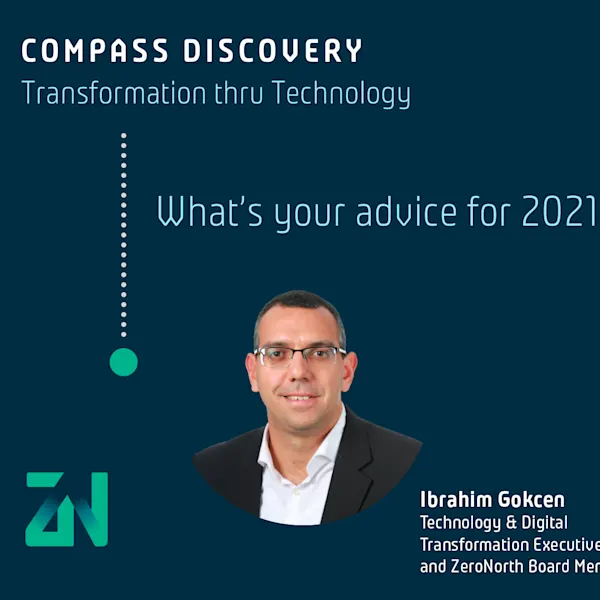Compass Discoveries: Preparing for Digital Transformation with Ibrahim Gokcen
Technology and Digital Transformation Executive and ZeroNorth Board Member Ibrahim Gokcen speaks to us about how maritime businesses can make the most of the digital transformation.
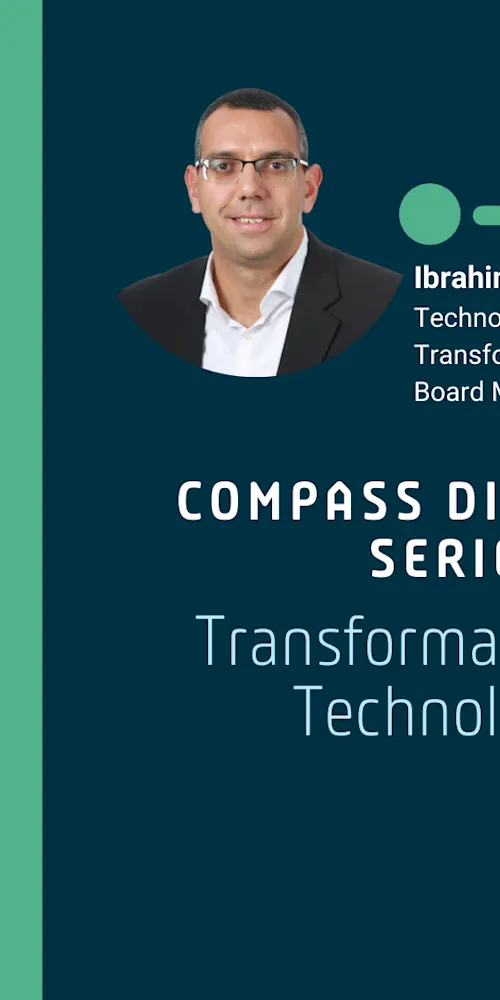
Across many industries, digital transformation is recognised as an enabler of smoother operations, increased efficiencies and greater revenue. The maritime sector is now increasingly getting to grips with the power of digital solutions to generate real change.
To understand more about this topic, we recently spoke to Technology and Digital Transformation Executive and ZeroNorth Board Member Ibrahim Gokcen, on the power of digital transformation in maritime — including its potential positive impact on business performance and the sector’s decarbonisation goals.
Here’s what Ibrahim had to say.
Outcomes over outputs
According to Ibrahim, businesses approaching digital transformation too frequently focus on the implementation of systems, the operational challenges of a widescale change, or even just ‘commercial value’. Instead, businesses should think laterally and exercise a “customer-first approach”.
“It’s really all about first understanding the outcomes that matter to the customers.”
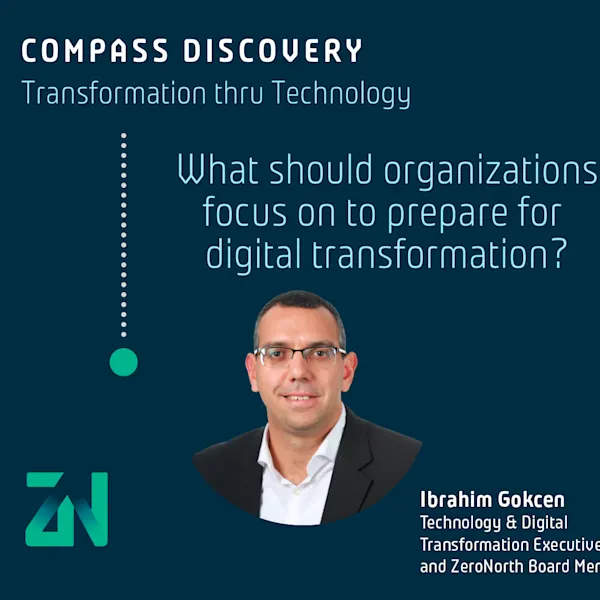
Ibrahim goes on to say that rather than thinking about the logistics of digital transformation, businesses should prioritise the data required to drive success.
“The trick is really how to merge and how to integrate those data sets […] and how to create those outcomes.”
Breaking data silos
The power of data-led digital solutions lies in transparent information sharing, breaking the historically siloed nature of shipping’s data ecosystem. Ibrahim cites the “data network effect” as the key to creating an end-to-end customer experience, with data interpreted over time generating more robust recommendations and insights.
“Once you share [the data] with your customers, you start to get feedback around what else is needed, and how it can be improved.”
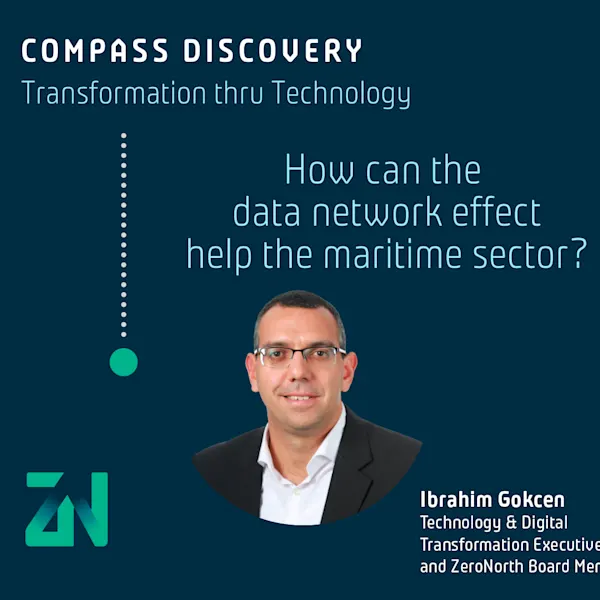
Ibrahim continues “The more data you get, the more elements you integrate, the more exponential value you can create.”
Widespread benefits
And it’s by breaking these data silos that digital solutions can truly create positive impact for a range of challenges in the shipping industry — and the professionals and customers within it.
It’s by breaking these data silos that digital solutions can truly create positive impact.
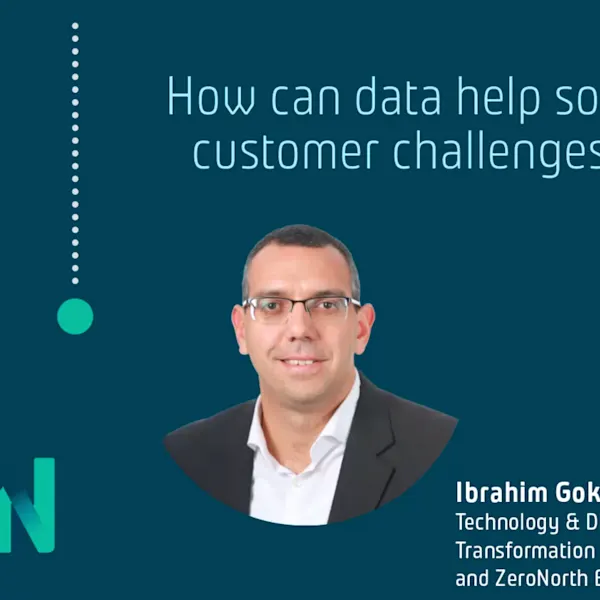
Leveraging AI and machine learning
More than just buzzwords, an increasing number of businesses — including those in shipping — have been leveraging AI and machine learning in new and novel ways.
But as a specialist in the field, Ibrahim says more work is needed to fully realise the potential of AI.
“Fewer companies can truly say that they are operationalising AI models into their operations, or they are […] creating value from AI at a larger scale.”
"In order to overcome challenges, businesses need to look for individuals with the requisite skillset to work with data and use AI to solve larger, more significant problems."

Ibrahim states that in order to overcome these challenges, businesses need to look for individuals with the requisite skillset to work with data and use AI to solve larger, more significant problems.
Reimagining the industry
As a Board Member at ZeroNorth, Ibrahim says that the “transformation of an industry” is what motivates his work with the company — as well as to participate in the vital mission to decarbonise shipping.
“The purpose of solving a real challenge, which is climate change — reducing carbon emissions, decarbonising shipping — I think it’s a major driver of my excitement.”
As a Board Member at ZeroNorth, Ibrahim says that the "purpose" and “transformation of an industry” is what motivates his work with the company.
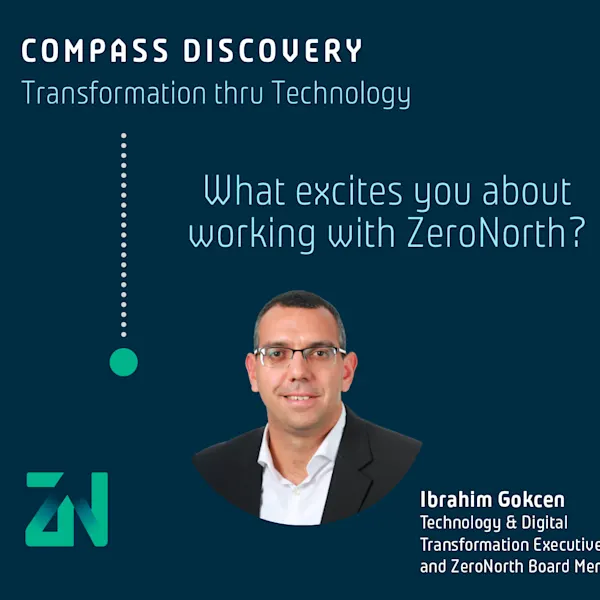
Always think scale
A single piece of advice for maritime to embrace change and prepare for digital solutions? There isn’t just one. Watch to learn about the three key initiatives and how to make them part of your organisation.
Ibrahim advises that businesses in shipping to open themselves up to collaboration, ensure customer centricity in their operations, and to “always think of scale”.
Ibrahim advises on the top three key initiatives for 2021.
